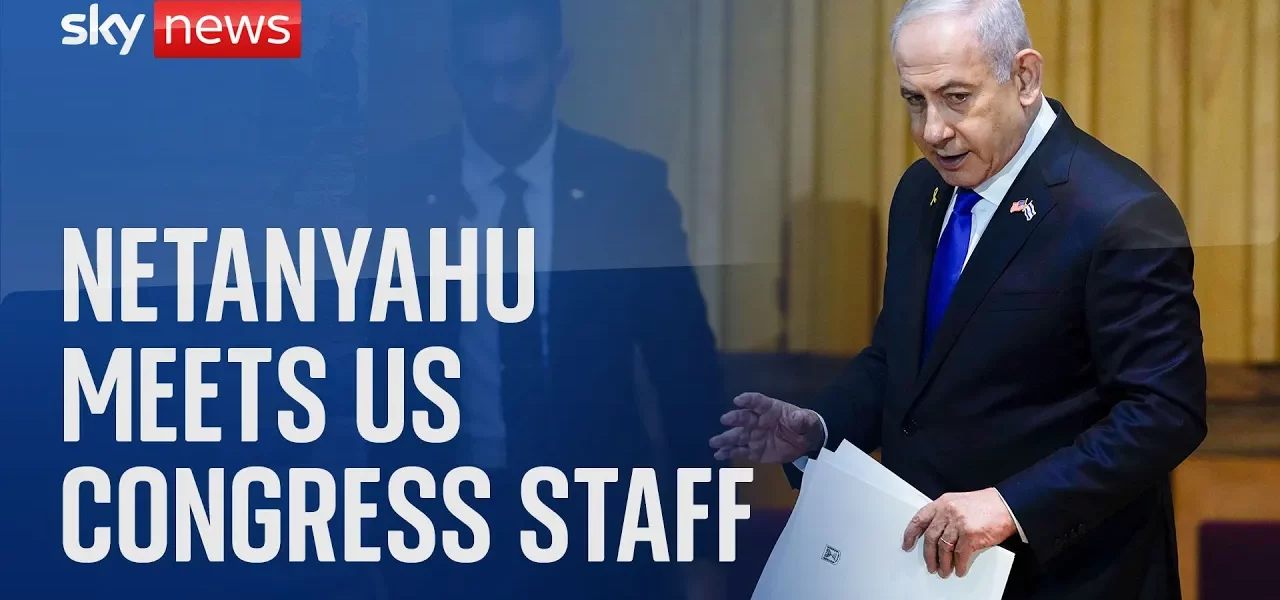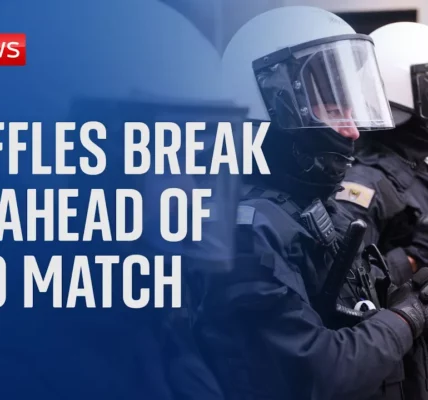Understanding the Geopolitical Landscape: Israel’s Struggles and American Support

This article delves into the complex geopolitical challenges that Israel is currently facing, including military threats, international relations, and the critical importance of American support in these tumultuous times.
Introduction
On October 7th, a historic massacre shook Israel, igniting a series of events that have tested the nation’s resilience and fortitude. As Israel confronts multifaceted threats, including hostile actions from Hezbollah in the north and ongoing attacks from Hamas, it finds itself at a crucial juncture. The geopolitical landscape is further complicated by the involvement of countries like Iran, Russia, and China, as well as the challenges posed by lawfare and information warfare. This article explores these issues in-depth, emphasizing the unwavering support that the United States extends to Israel during this critical time.
The October 7th Incident: A Turning Point for Israel
The tragic events of October 7th marked a significant turning point in Israeli history, as the nation faced unprecedented violence and loss. This section outlines the implications of this incident and the responses it triggered.
Immediate Aftermath
In the immediate aftermath of the October 7th attacks, Israel had to mobilize its defense forces to counteract threats from multiple fronts. The military response was swift, aiming to restore security and deter further aggression.
Long-term Consequences
- Increased military readiness and surveillance along the northern borders.
- Strengthening of alliances with Western nations, particularly the United States.
- A renewed focus on countering misinformation and lawfare tactics.
Facing Multiple Threats: Hezbollah and Iran
Israel’s security landscape is increasingly complex, with threats emerging not just from within but also from neighboring countries. In this section, we delve into the specific threats posed by Hezbollah and Iran.
Hezbollah’s Role in the Northern Front
Hezbollah, a Lebanese militant group, poses a significant threat to Israel’s northern border. The group’s military capabilities and aggressive posturing necessitate a robust Israeli response.
Iran’s Influence and Aggression
Iran’s ambitions in the region further complicate the situation. As an ally of Hezbollah, Iran has demonstrated a willingness to engage in direct confrontation with Israel.
- Support for militant groups like Hamas and Hezbollah.
- Involvement in regional conflicts that destabilize Israel’s neighbors.
- Direct military threats against Israeli territories.
Lawfare and Information Warfare: A New Battlefront
In addition to kinetic threats, Israel faces challenges in the realms of lawfare and information warfare. This section examines how these non-kinetic tactics are employed against the nation.
Understanding Lawfare
Lawfare refers to the use of legal systems and principles to achieve military or political objectives. Israel has been a frequent target of such tactics, which aim to delegitimize its actions on the global stage.
The Role of Media and Misinformation
The media plays a crucial role in shaping public perception. Misinformation and biased reporting can exacerbate tensions and undermine Israel’s legitimacy. Strategies to counteract this narrative include:
- Engaging with international media to provide accurate information.
- Utilizing social media to counteract false narratives.
- Fostering relationships with key influencers and opinion leaders.
The Importance of American Support
As Israel navigates these challenges, the support of the United States remains vital. This section underscores the significance of this alliance.
Historical Context of U.S.-Israel Relations
The bond between the United States and Israel has deep historical roots, marked by shared democratic values and mutual security interests.
Current U.S. Support and Its Implications
In times of crisis, American support manifests in various forms, including military aid, diplomatic backing, and economic assistance. This support is crucial for:
- Enhancing Israel’s military capabilities.
- Providing a diplomatic shield against international criticism.
- Reinforcing the strategic partnership between the two nations.
Conclusion
In conclusion, the challenges facing Israel are multifaceted and require a unified response both domestically and internationally. The events following October 7th have highlighted the need for solidarity and support from allies, particularly the United States. As we reflect on these issues, it is essential for Americans to stand shoulder-to-shoulder with Israel in its ongoing struggle for peace and security. To learn more about the significance of U.S.-Israel relations, check out our related articles on geopolitical issues and international diplomacy.
“`




